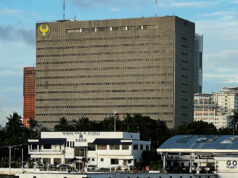AMLC tells covered persons to tighten guard against fencing

THE Anti-Money Laundering Council (AMLC) reminded its covered persons to be vigilant of fencing and conduct due diligence.
In an advisory, the AMLC reminded covered institutions that fencing, or dealing and accepting fenced items, is a violation of Presidential Decree No. 1612 or the Anti-Fencing Law.
The law defines fencing as an act of buying, keeping, concealing, or selling an item or anything of value with knowledge that it came from proceeds from robbery or theft.
“Covered persons are advised to conduct proper due diligence of their customers/clients and monitor transactions to recognize when a transaction, or a series of transactions, are unusual,” the AMLC said.
The dirty money watchdog said covered persons should submit suspicious transaction reports within the next working date after identifying that a transaction or an attempted transaction is dubious in nature.
It said covered persons should watch out for markers of suspicious transactions, such as when a customer is not properly identified, the lack of purpose or justification for the transaction, or when an amount involved appears to be not commensurate to a client’s financial capacity.
Covered persons should also look for signs that a client’s transaction appears to be structured to avoid AMLA requirements, instances when a transaction is a deviation from the customer’s profile and previous dealings, or when these transactions are related to unlawful activities under the country’s anti-dirty money laws.
The AMLC said covered persons may be slapped with administrative sanctions and penalties if they fail to do due diligence or miss monitoring transactions and filing reports. — LWTN



